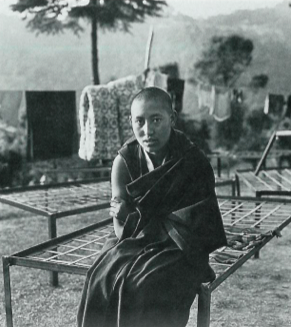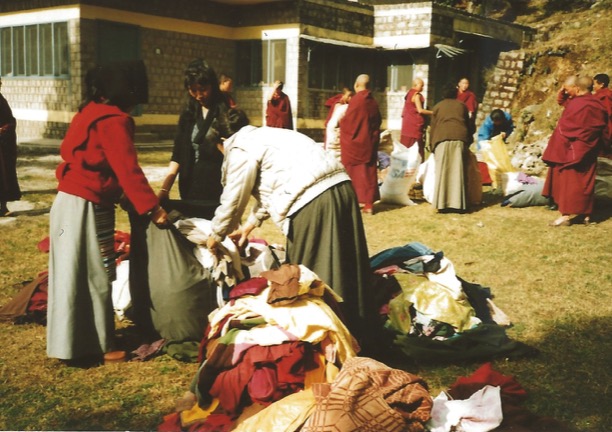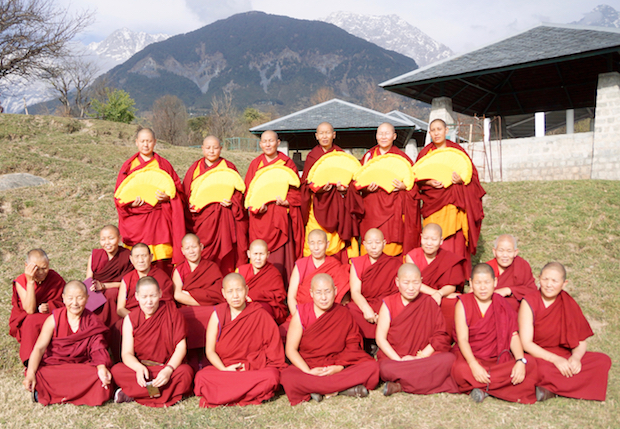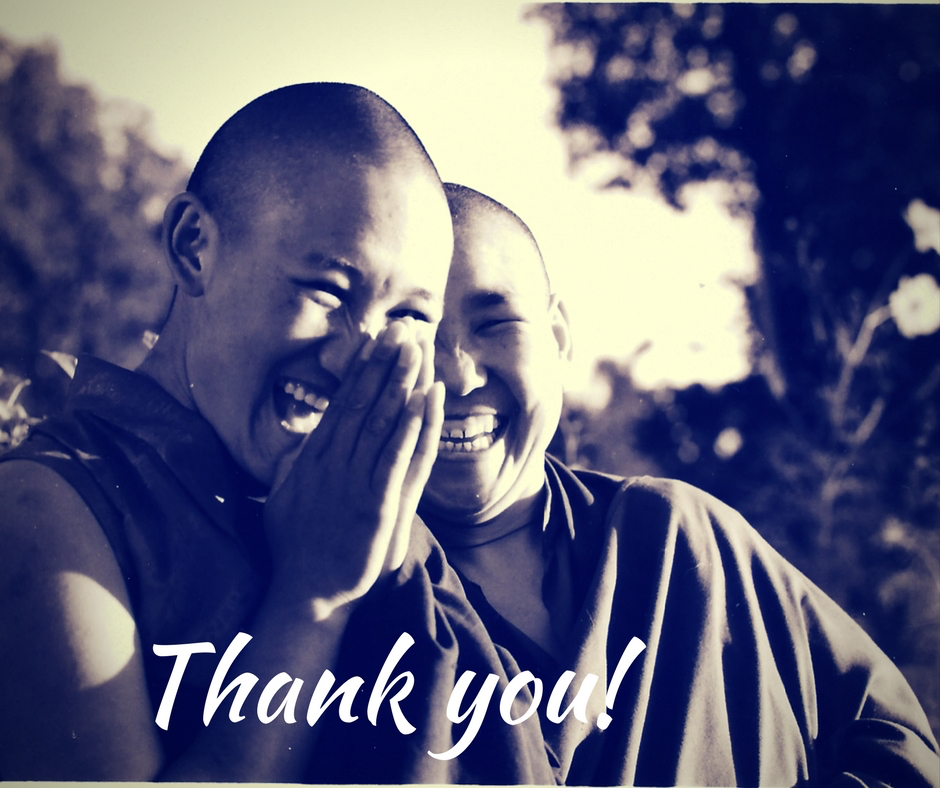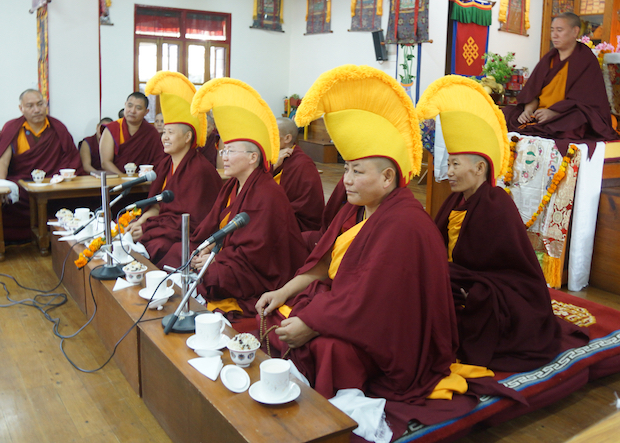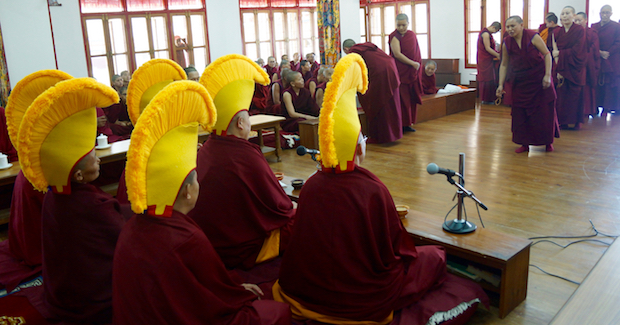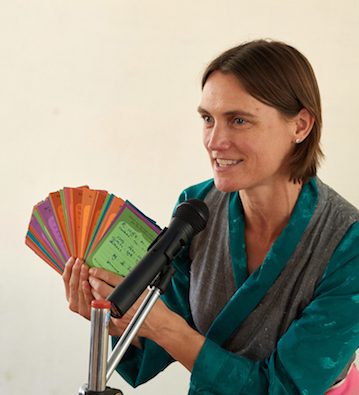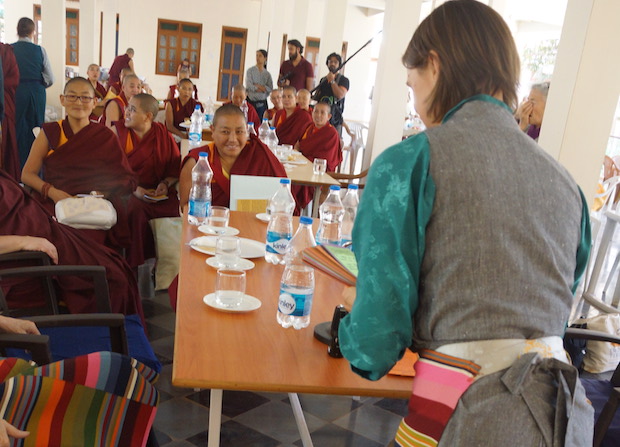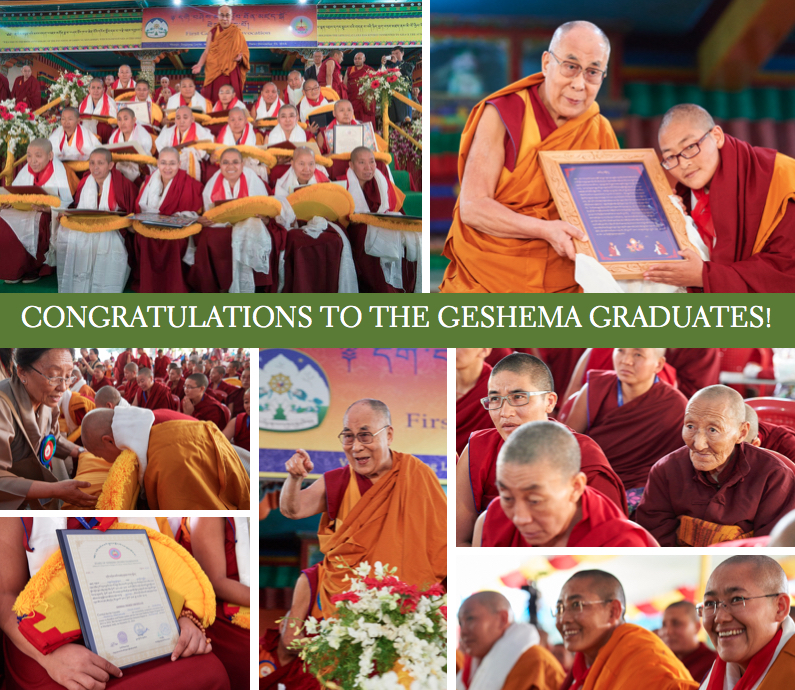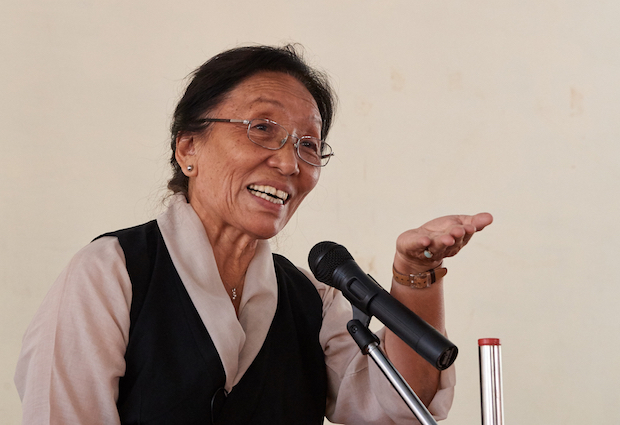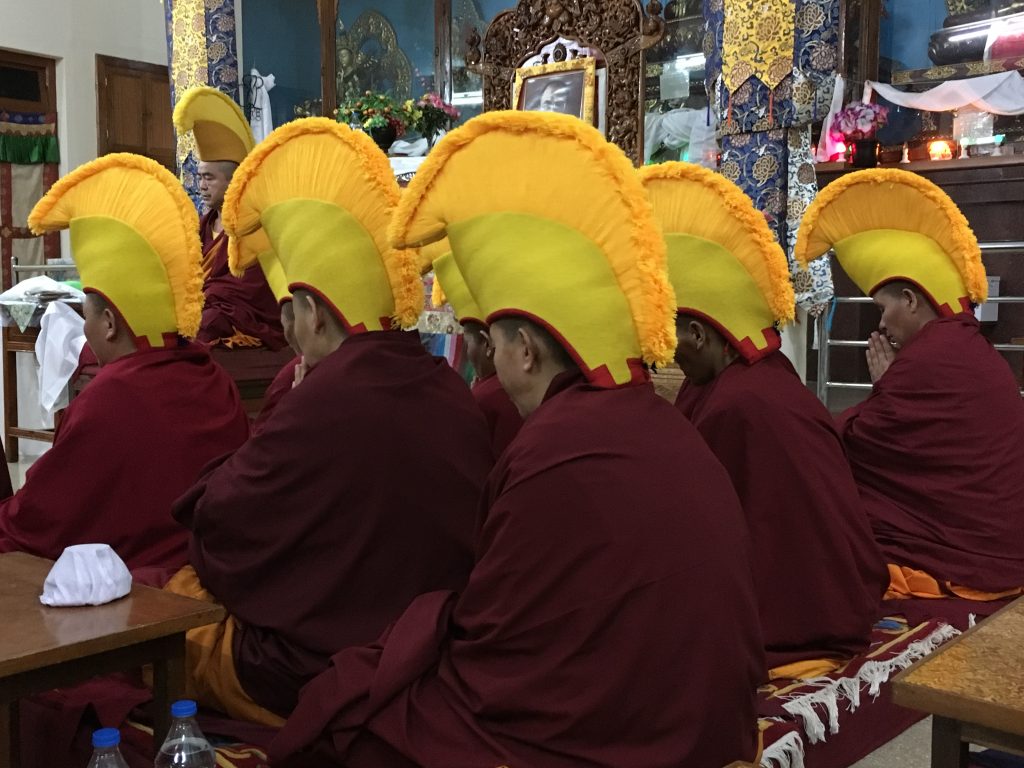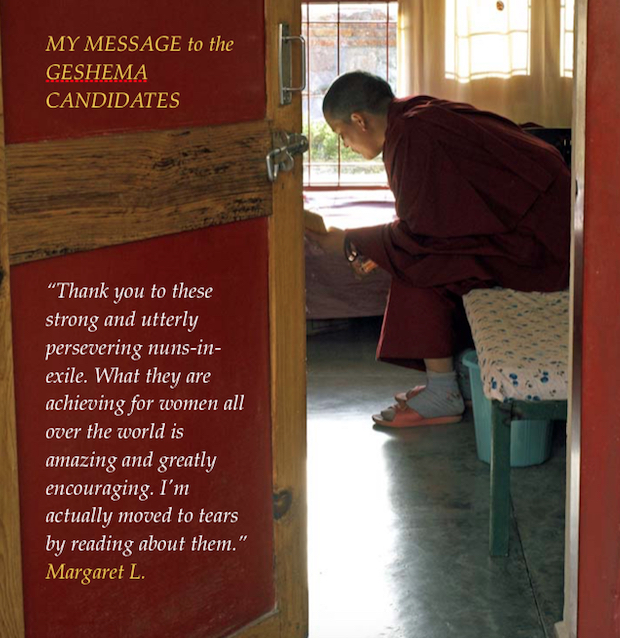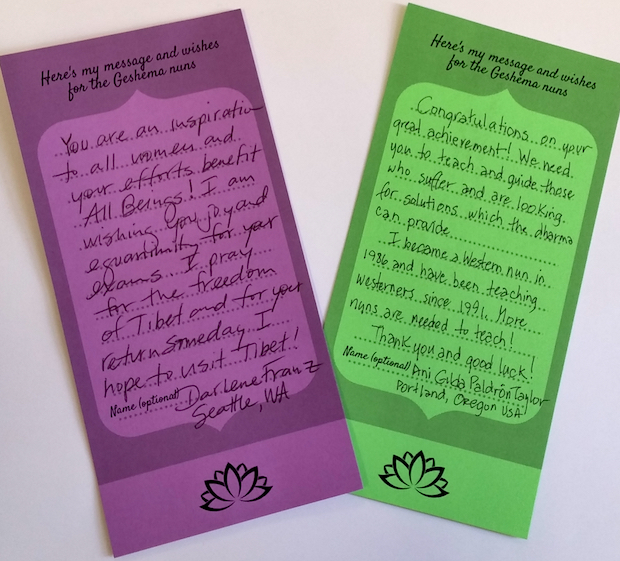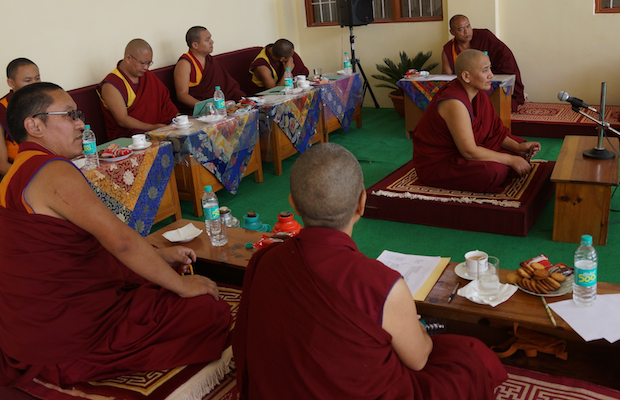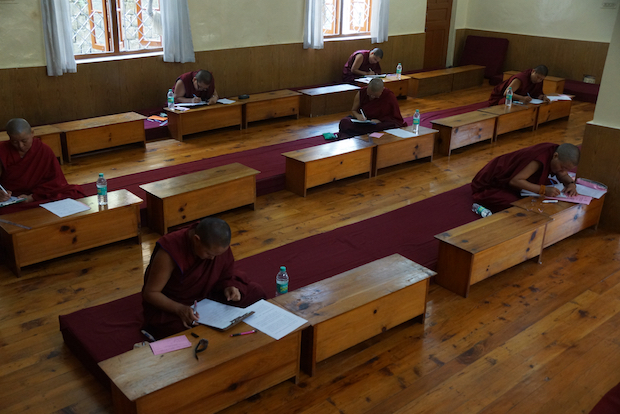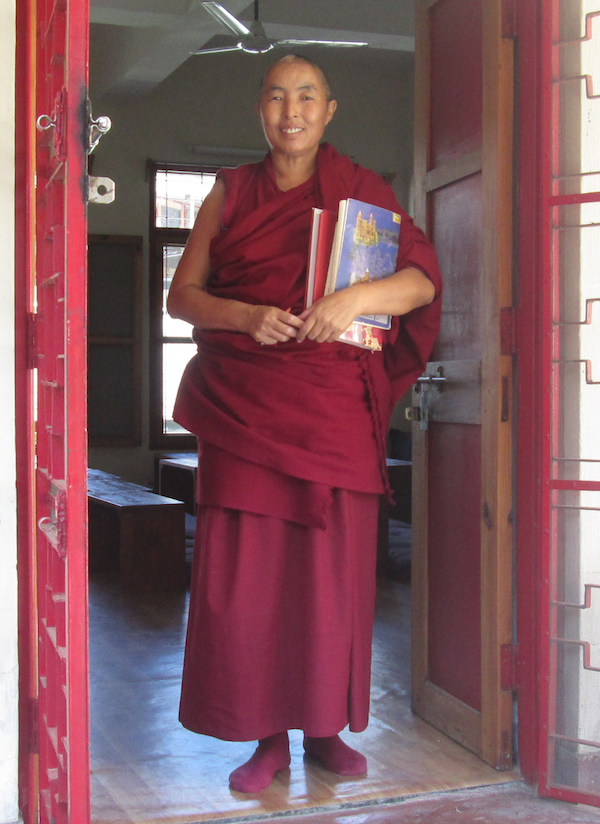On October 2nd 2017, the Tibetan Nuns Project celebrated 30 years of work to educate, empower, and improve the status of ordained Tibetan women.
It was a chance to reflect on how far we have come together and how much more is still needed.
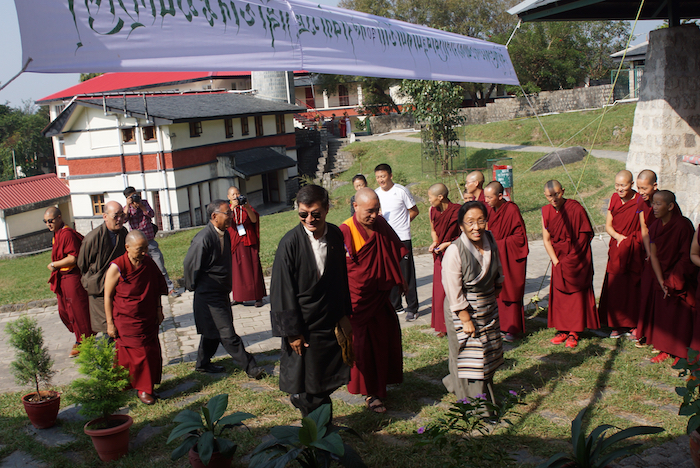
Tibetan Nuns Project Founder and Director, Rinchen Khando Choegyal and Chief Guest Sikyong Dr. Lobsang Sangay arrive at the event to mark the 30th anniversary of the Tibetan Nuns Project. Photo by Nuns Media Team.
A special event was held at Dolma Ling Nunnery in northern India. The non-sectarian nunnery is the largest of the two nunneries built and fully supported by the Tibetan Nuns Project and is now home to over 230 nuns. In October, the nunnery also hosted the month-long annual inter-nunnery debate event, the Jang Gonchoe, bringing up to 450 nuns from about 7 nunneries in India and Nepal.
The timing of the 30th anniversary event was also ideal because the 20 nuns who graduated with their Geshema degree in December 2016 had just gathered at Dolma Ling. In November, they will begin a brand new and historic two-year program in Buddhist tantric studies.
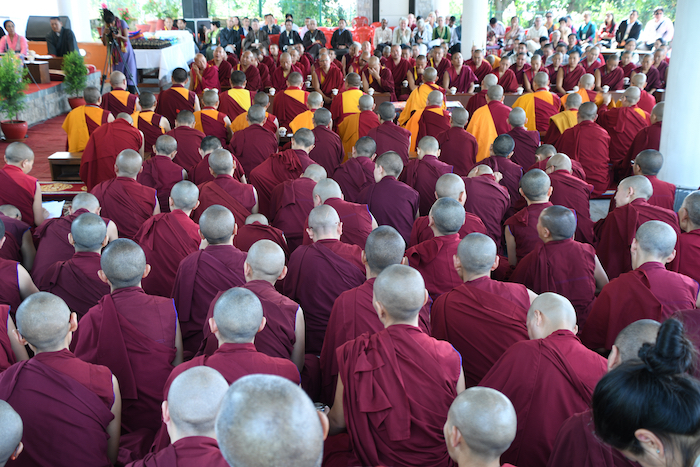
Hundreds of Tibetan Buddhist nuns and special guests gathered at the debate courtyard at Dolma Ling Nunnery for the formal celebration of the 30th anniversary of the Tibetan Nuns Project on October 2nd, 2017. Photo by Nuns Media Team.
Speaking to the crowds and honored guests at the event, Rinchen Khando Choegyal, founder and director of the Tibetan Nuns Project said, “Our early days were very hard. A huge influx of nuns arrived in India from Tibet with nothing. The nuns were in bad health, 99% couldn’t read or write, and they were traumatized from being imprisoned and beaten. We supported the nuns with their immediate needs and turned our attention to the future – building two nunneries and establishing a system of education for them.”
“Our 30th anniversary is an opportunity to thank our supporters and to take stock of the many historic milestones that would not have been possible without your compassion for the nuns. You and your support will be remembered in the history of Tibet and for future Tibetan Buddhist nuns,” the director said.
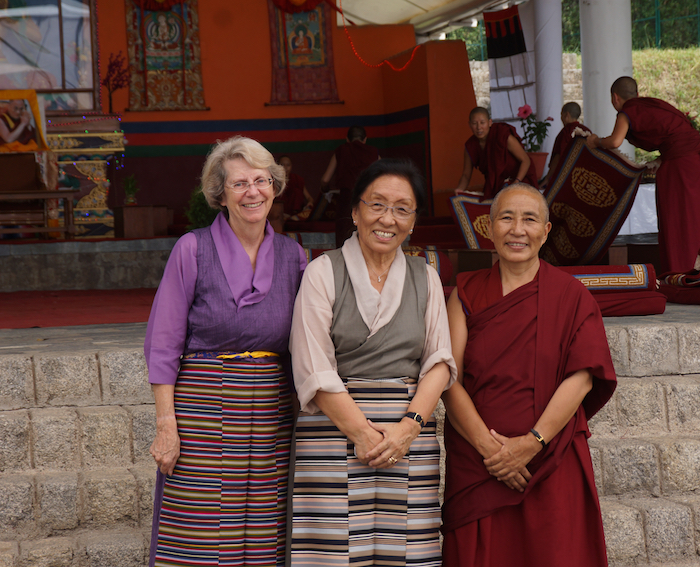
The Tibetan Nuns Project leadership. Left to right: Dr. Elizabeth (Betsy) Napper, Co-Director; Mr. Rinchen Khando Choegyal, Founder and Director; and Venerable Lobsang Dechen, Co-Director. Photo by Nuns Media Team.
With the vision and unwavering support of our patron, His Holiness the Dalai Lama, and with the compassion and generosity of our global family of supporters, the Tibetan Nuns Project has been able to accomplish many things including:
- Creating a ground-breaking educational program for nuns;
- Feeding, clothing, housing, and educating almost 800 Tibetans nuns;
- Building two nunneries, Dolma Ling and Shugsep;
- Establishing the annual inter-nunnery debate, the Jang Gonchoe;
- Laying the groundwork for higher degrees for nuns;
- Awarding of the Geshema degrees for the first time in the history of Tibet; and
- Providing studies in Buddhist tantra for the Geshemas for the first time ever.
“It is very sad that we have lost our country,” said Rinchen Khando. “But at the same time, we belong to a strong refugee community with a vision. Through the leadership of His Holiness the Dalai Lama, the vision is to preserve our culture and religion, and to go back to Tibet.”
The chief guest at the 30th anniversary event, the Tibetan government’s highest official, Prime Minister (Sikyong) Dr. Lobsang Sangay, spoke about the historic achievement of awarding the highest degrees to nuns.
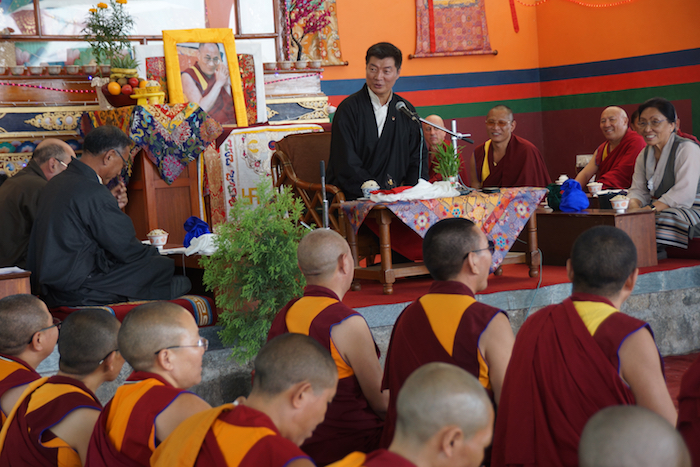
Sikyong Dr. Lobsang Sangay speaking at Tibetan Nuns Project 30th anniversary event Oct 2 2017
“Accomplishments of the Tibetan Nuns Project over the years including the re-establishment of one of the most illustrious Tibetan Nunneries in Tibet and laying of the groundwork for highest Buddhist education for Tibetan nuns have made significant contributions to the revival of Tibetan Buddhism in exile.”
He expressed his gratitude to His Holiness the Dalai Lama for inspiring the successful revival of Tibetan culture and resilience of the people in the most challenging times.
“This achievement is part of His Holiness’s bigger vision. Primarily the goal of the Chinese Communist Government was to destroy – to make Tibet into China, Tibetans into Chinese people. The primary objective or strategy was to destroy monasteries and nunneries… 98% of monasteries and nunneries were destroyed in Tibet. 99.999% of monks and nuns were distraught. They were sent to prison. Many died of starvation,” said the Sikyong.
He added that the Chinese leadership may have thought that they had won because the foundation of Tibetan civilization which is Buddhism is gone. But then, in exile, the Tibetan culture and religion is being preserved. “Brick by brick, stone by stone”, he said, the major monastic institutions are being rebuilt.
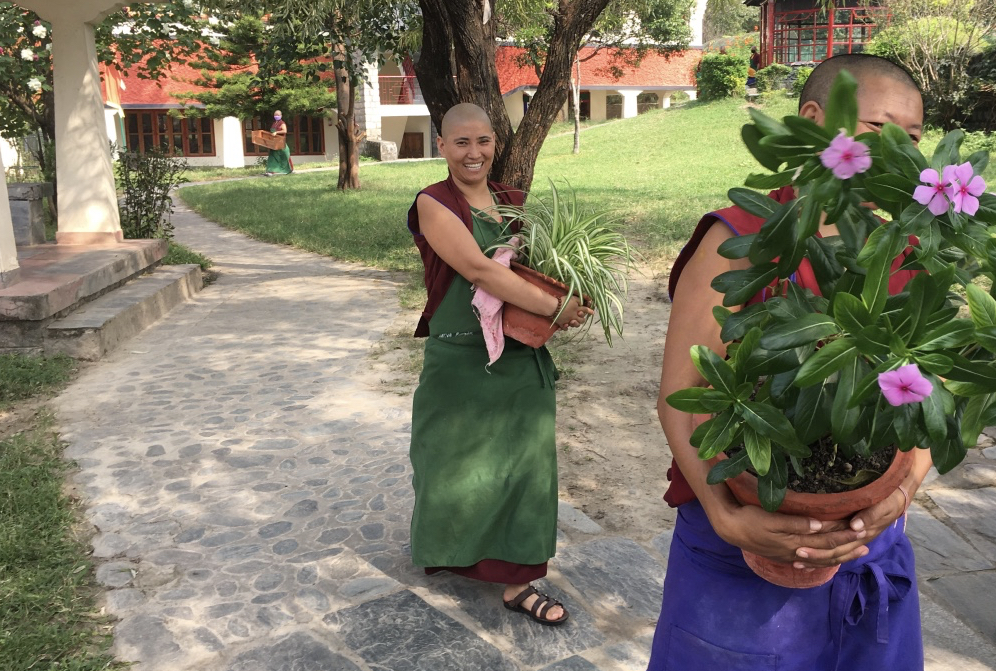
Helping to prepare for the 30th anniversary event at Dolma Ling.
“All this started very small… You all worked to empower women and have nuns on an equal footing with monks.”
Also gracing the occasion were the Education Kalon, Ngodup Tsering, Members of the standing committee of the Tibetan parliament, Joint Secretary of the Department of Religion and Culture, other representatives and also the first ever batch of Tibetan Geshema holders and 15 Tibetan nun lopons.
Audience with His Holiness the Dalai Lama
On October 4th, a special group audience for the Tibetan Nuns Project was given by His Holiness the Dalai Lama. The group included staff, board members, donors and nearly all the 20 nuns who became Geshemas last winter.
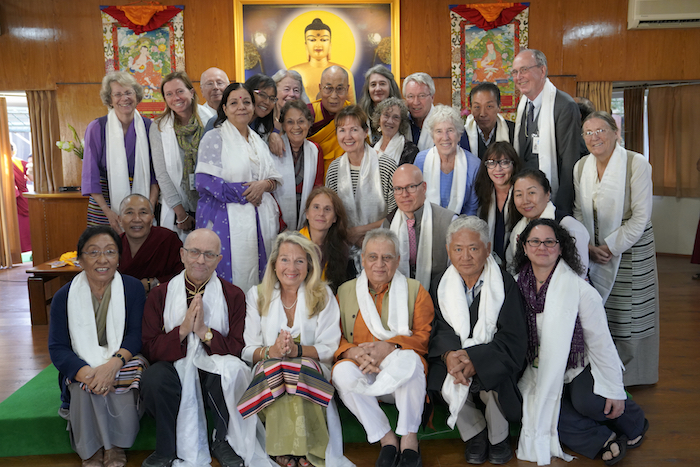
Tibetan Nuns Project donors and supporters with His Holiness the Dalai Lama on October 4 2017
Speaking in Tibetan, His Holiness the Dalai Lama praised the assembled nuns holding the highest degrees in their traditions (the Geshemas and the Loponmas).
“Since the Buddha ordained his stepmother, Mahaprajapati Gotami and conceded that nuns’ aptitude for study and practice was equal to that of monks,” His Holiness the Dalai Lama said, “I felt it was appropriate to give nuns the opportunity also to study on an equal footing.”
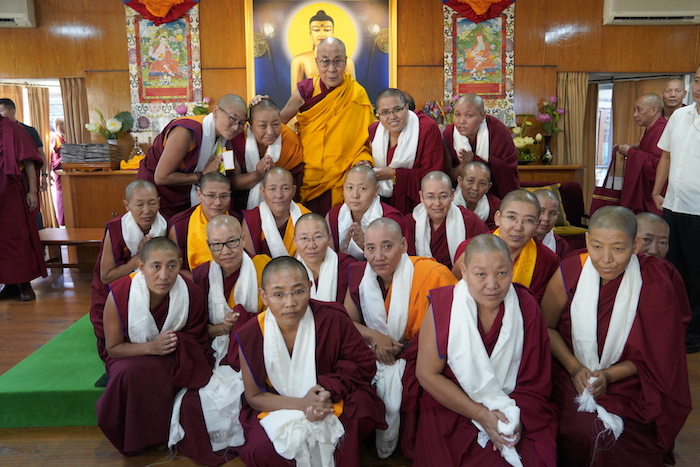
His Holiness the Dalai Lama with the Geshemas
His Holiness the Dalai Lama praised the nuns for their debating skills. “I remember visiting the Bhandara settlement several years ago and because I was impressed by the schoolchildren’s debate performance I asked who had taught them. I was pleased to learn it was this nun here [pointing to a Geshema nun in the front row who wiped her eyes with deep emotion] , who told me she trained at Dolma Ling Nunnery.”
He told the assembled group that the Buddha’s teachings flourished in India at such great seats of learning as Takshashila, Nalanda and Vikramashila. It was not a tradition merely based on faith, but was rooted in the use of reason and logic and included instructions for transforming the mind.
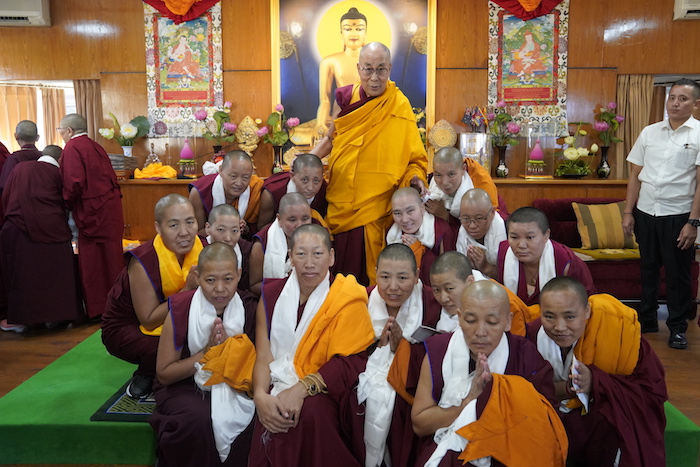
His Holiness the Dalai Lama with the Shugsep Loponmas
He concluded by saying, “What you have all achieved is something for the Tibetan people as a whole to be proud of.”
Without the support and dedication of many people – His Holiness the Dalai Lama, our three devoted directors, board members in India and the US, our monastic and lay teachers, staff, sponsors, donors, and kind friends around the world, the Tibetan Nuns Project and the nuns would not be where we are today.
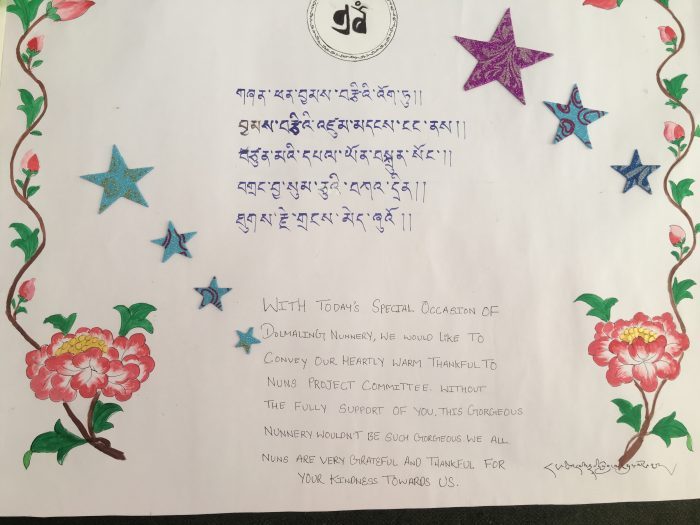
One of the many messages of congratulations to the Tibetan Nuns Project from nuns at various nunneries and posted on the bulletin board at Dolma Ling Nunnery

